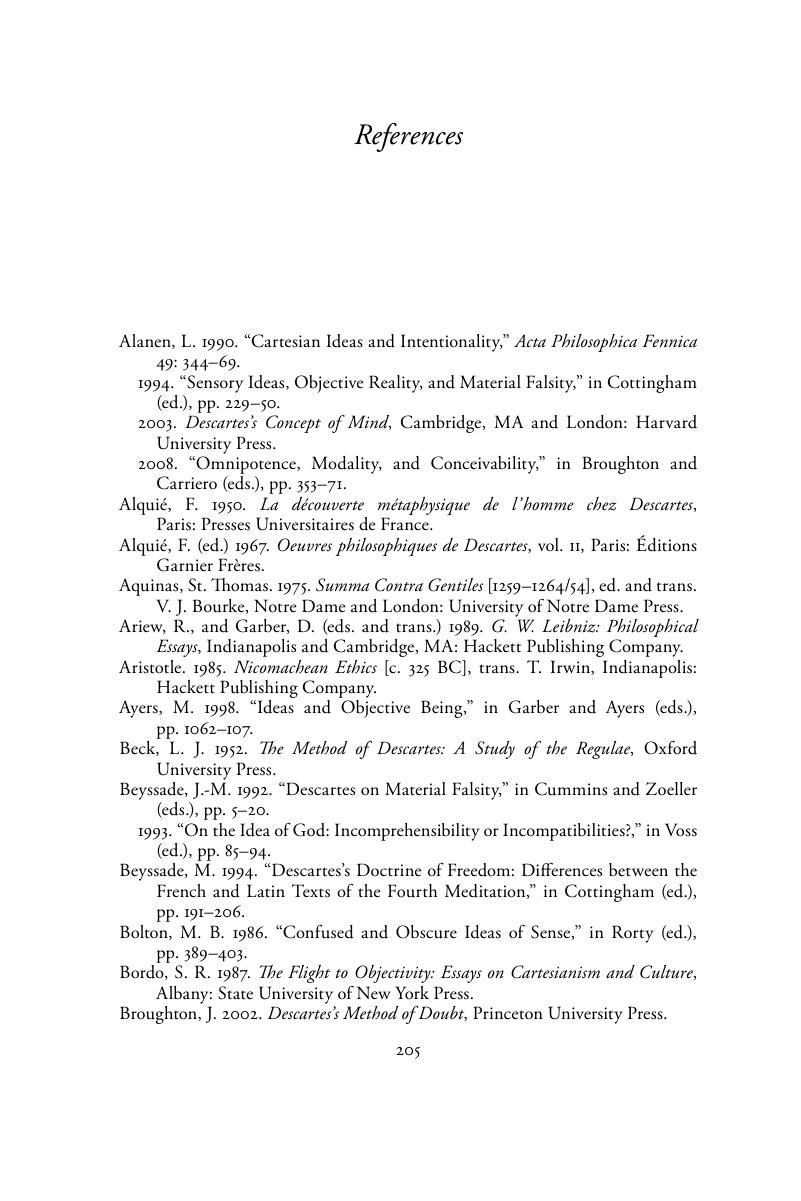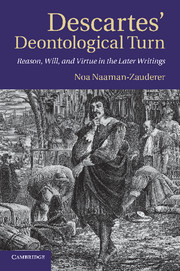Book contents
- Frontmatter
- Contents
- Preface
- List of abbreviations
- Introduction
- 1 Looking inward: truth, falsehood, and clear and distinct ideas
- 2 Error in judgment
- 3 Free will
- 4 Free will and the likeness to God
- 5 From intellectual to practical reason
- 6 Descartes' deontological ethics of virtue
- References
- Index
- References
References
Published online by Cambridge University Press: 10 January 2011
- Frontmatter
- Contents
- Preface
- List of abbreviations
- Introduction
- 1 Looking inward: truth, falsehood, and clear and distinct ideas
- 2 Error in judgment
- 3 Free will
- 4 Free will and the likeness to God
- 5 From intellectual to practical reason
- 6 Descartes' deontological ethics of virtue
- References
- Index
- References
Summary

- Type
- Chapter
- Information
- Descartes' Deontological TurnReason, Will, and Virtue in the Later Writings, pp. 205 - 212Publisher: Cambridge University PressPrint publication year: 2010

